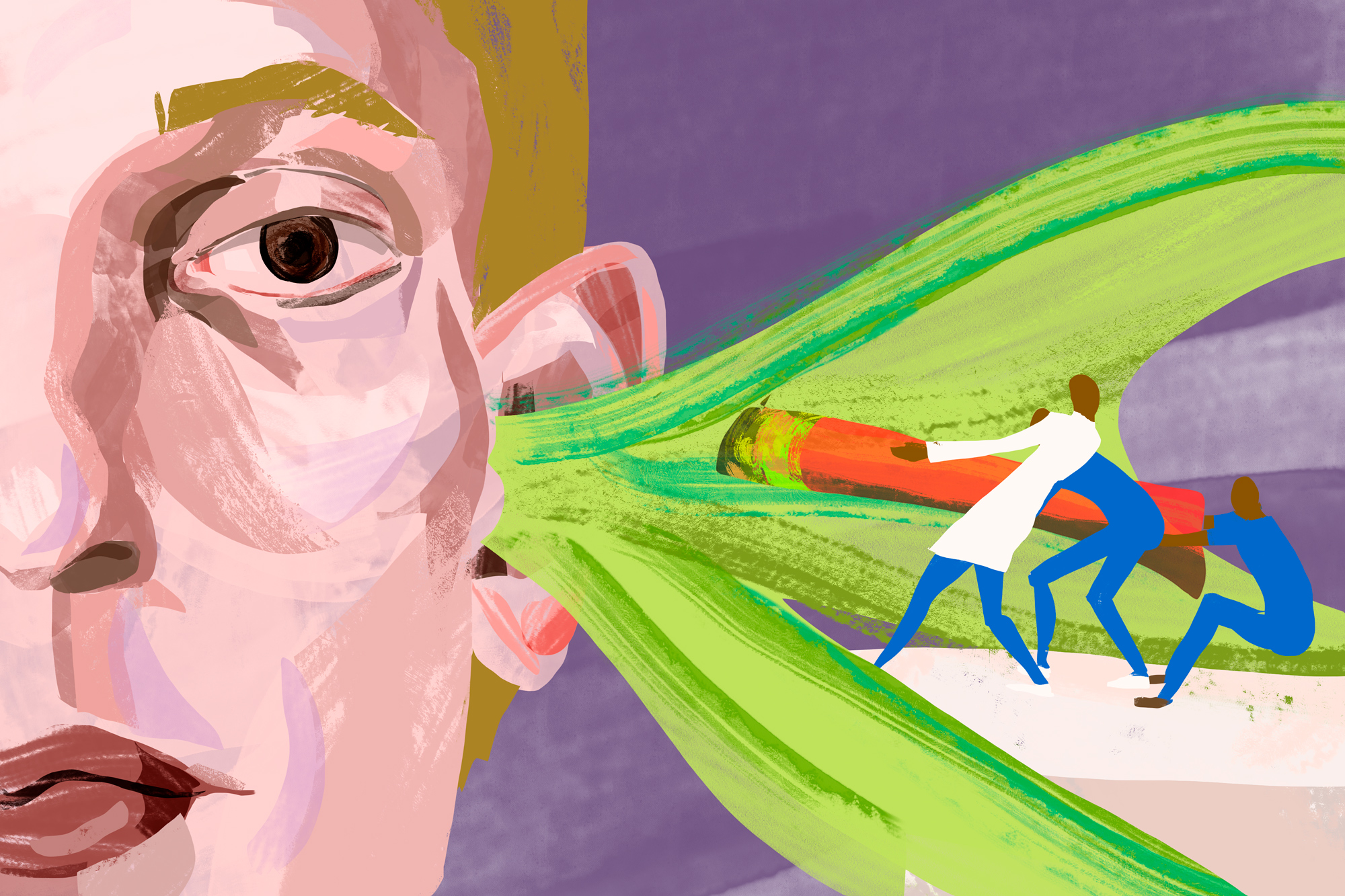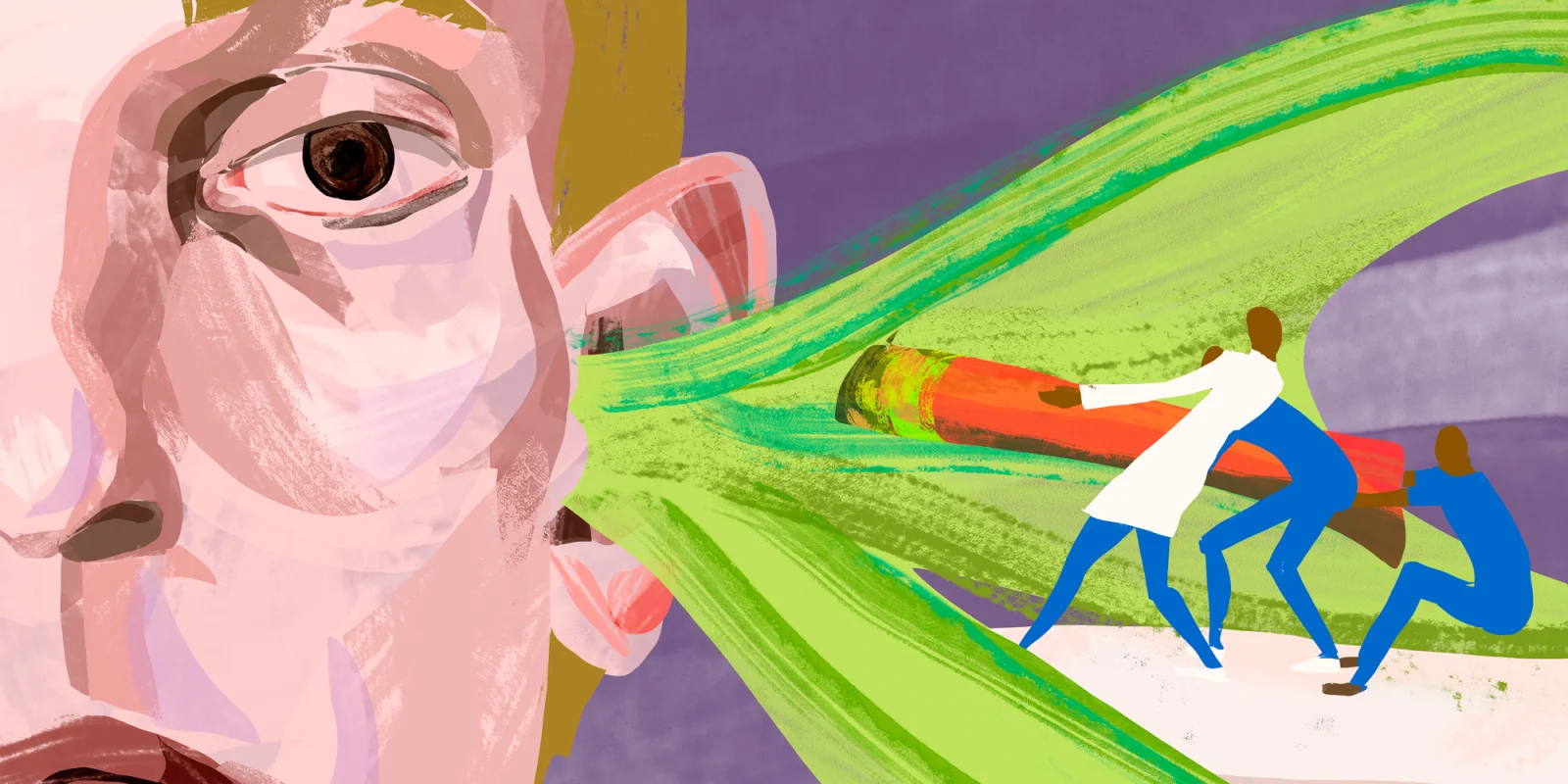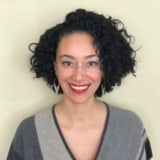 I was crying in my car on the way home from the hospital when I remembered the words bleak isolation. I heard the phrase before, used to describe the experience of black female faculty. That day, during a weekly research conference, I was taught by a visiting professor that “black women don’t take their study drug,” making the results of a prenatal trial more difficult to interpret. I looked around the conference room. No one else was blinking rapidly. No one else’s neck was getting hot like mine. No one else’s heels were bouncing rapidly against the floor. The lecture went on as if nothing extraordinary had been said.
I was crying in my car on the way home from the hospital when I remembered the words bleak isolation. I heard the phrase before, used to describe the experience of black female faculty. That day, during a weekly research conference, I was taught by a visiting professor that “black women don’t take their study drug,” making the results of a prenatal trial more difficult to interpret. I looked around the conference room. No one else was blinking rapidly. No one else’s neck was getting hot like mine. No one else’s heels were bouncing rapidly against the floor. The lecture went on as if nothing extraordinary had been said.
But I heard. Too often, I hear. Being a black physician in the United States means there is a near-constant cacophony of this sound: unacknowledged bias and racism in discussions about patients, their families, research populations, and communities. Bias and racism disguised as accepted dogma, poured into the ears of trainees and fellow clinicians, who absorb it without a pause in their mental processing. But why can’t more people hear this noise? I think it’s because the messages are so aligned with our larger culture.
American culture is built on slavery, sharecropping, segregation, generational oppression, and systemic disadvantage of marginalized populations. I cried in my car that day because I understood that my colleagues in medicine do not hear what I hear. I understood that the MD and PhD researchers who conduct NIH-funded clinical trials don’t hear it. The medical school faculty who are shaping the next generation of doctors don’t hear it. The residents and fellows don’t hear it. The burden is on me. As a black physician in academic medicine, I am almost always the only one in the room who does hear it. And so, I must absorb the full volume.
The comment about black women as research participants is only my most recent aural trauma. At a national conference in 2018, researchers lectured to a packed audience that minority families don’t enroll in pediatric diabetes trials. No one on the panel seemed disturbed by the gross generalization. Several years ago, a pediatric resident presented definitive data that black children are referred for developmental testing less frequently than white children for a positive autism screen. A respected senior faculty member commented – to the room full of trainees – that the autism screen must be at fault. In medical school, the cultural competency lecturer told a room full of 120+ bright-eyed (mostly white) medical students that “black teenage girls in this neighborhood will sell their body for a box of fried chicken.” Nobody batted an eyelash.
Each of these declarations represents a shattering of a black doctor’s hope. Daily, I face the reality of long-documented health disparities by race. Black women die at greater than twice the rate of white women peripartum. Black infants have more than twice the infant mortality rate of white infants. Black women have worse cancer outcomes than white women. Black patients at risk for severe morbidities are not equitably included in clinical trials, limiting the generalizability of research findings. Black patients are less likely to receive pain medications in the emergency room. How can these wrongs be righted if most American physicians cannot HEAR?
These are truths that are difficult to write and will be difficult to read. Most physicians and researchers and nurses are white. And just like non-medical Americans, they have been raised in the soup of racism that is American culture. The vast majority live in segregated neighborhoods, their children likely attend segregated schools. Racism and racial disadvantage are distant constructs that most have not spent significant time researching or trying to understand. Deep thought and moral outrage about racial injustice is optional for most medical professionals — because these realities will never directly affect them or their families. When it comes to racism, the medical field would prefer to believe that race and deeply entrenched bias do not enter the hospital, clinic, or research spaces. But as a black physician, I see evidence to the contrary so frequently that, at times, I wonder if things can ever change.
At the end of the noon conference, I spoke up in my state of concealed agitation and asked the professor if there were reasons black women were less compliant with the study drug in her trial. Only then did she mention that in focus groups, black women had expressed concern that no one on the research team looked like them, and that taking a study drug capsule with unknown contents while pregnant was not easy. So I ask you: Why were these facts not included upfront, before the gross generalization of black women? It is because “othering” in our society is easier and more palatable than a nuanced conversation about how we are generally failing minorities in this country when it comes to biomedical research.
“Otherness” defined by brown skin is so deeply ingrained in the psyche of Americans that it is below the conscious mind and rational thought. Medical students and residents endorse beliefs that black patients have physically thicker skin and rate the same pain signs lower than white patients. Without many, many, many difficult conversations in the medical training setting, racial disparities in health outcomes will not improve. They will not. Without bringing more of the ears that can hear into the rooms where medical training and patient care occurs, outcomes will not improve. Until white physicians can explain eloquently why, from a historical and culturally accurate context, black patients may trust them less, may be less compliant with their recommendations, and may appear distant during clinical encounters, outcomes will not improve. Until every provider internally acknowledges a patient’s race and social status during the clinical encounter, and can truly provide medical care within the context of that sometimes extremely harsh reality, outcomes will not improve.
Physicians are not taught the skills to provide the type of care I am describing. To the contrary, many physicians are trained in the “silent curriculum” so eloquently described by medical student Katherine Brooks. She wrote, with great vulnerability, that she has “learned to minimize the pain, forgo the consent, blame the behaviors, and dismiss the concerns of my patients of color.” Reading her account of her medical training was, paradoxically, one of the most hopeful days I have experienced as a black physician. I was hopeful because she spoke about difficult truths openly and bluntly. These are the conversations that can change racial inequities in medicine. Silence is complicity in the current state of black health in America. Each one of us who interacts with a medical trainee and never mentions racial inequity, racism, and health disparities is complicit — and one of the reasons we have not seen improvements to this day, in 2019. If you do not know the history or understand the data to support these types of conversations, I would gently encourage you to go study. Consider studying the data with the same curiosity and openness that you had in medical school when you learned about the physiology of the human body for the first time. Given the state of racial health disparities in our country, I truly believe that the health and lives of your black patients depend just as much on your knowledge of these complex social constructs as your expertise in medicine.
There are calls for more minority physicians because it is believed it will decrease health disparities. But given the pipeline, the equitable representation by race among nurses, physicians, medical researchers, and medical leaders is a very distant reality. We must act now and revolutionize the conversations in medical training and medical practice if outcomes of minority patients are to improve. We must teach each other to not only hear, but to speak.
As a final word, this piece focuses on the experience of a black physician and the experience of black patients, but I strongly believe that the ideas discussed apply to other racial minorities and those marginalized in society because of gender, sexual orientation, religion, or disability status. I stand alongside those fighting the same fight for these patient populations and vow to speak about their experiences and disadvantage when I interact with my trainees and colleagues. No one physician or group of physicians is to blame for the state of bias and racism in medicine, and I hope that the frankness of my thoughts does not turn well-intentioned people from action.
I will continue to speak unapologetically about bias and racism in medicine because as a relatively conscious black physician I do not know any other way to carry on.
Illustration by Jennifer Bogartz






